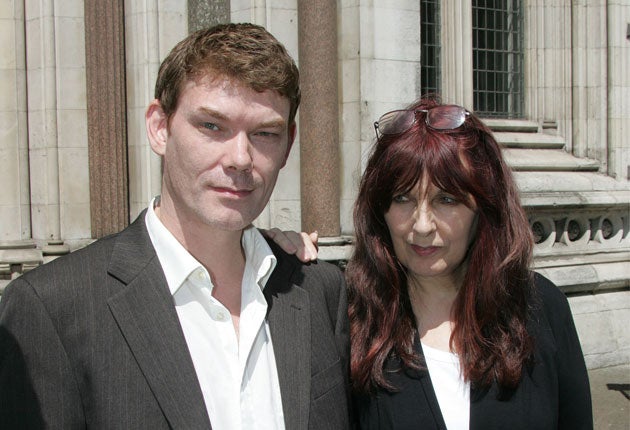Hacker loses final appeal against extradition to US
Home Secretary turns down Asperger's sufferer who broke into military computers

Your support helps us to tell the story
From reproductive rights to climate change to Big Tech, The Independent is on the ground when the story is developing. Whether it's investigating the financials of Elon Musk's pro-Trump PAC or producing our latest documentary, 'The A Word', which shines a light on the American women fighting for reproductive rights, we know how important it is to parse out the facts from the messaging.
At such a critical moment in US history, we need reporters on the ground. Your donation allows us to keep sending journalists to speak to both sides of the story.
The Independent is trusted by Americans across the entire political spectrum. And unlike many other quality news outlets, we choose not to lock Americans out of our reporting and analysis with paywalls. We believe quality journalism should be available to everyone, paid for by those who can afford it.
Your support makes all the difference.A last-ditch appeal to prevent a computer hacker from being extradited to the United States has been dismissed by the Home Secretary.
Gary McKinnon and his family were told yesterday that Alan Johnson is to allow the extradition to go ahead after refusing to block it on medical grounds.
Mr McKinnon, who has Asperger's syndrome, is accused by the US authorities of breaking into military and Nasa computers. He has admitted hacking but maintains he was looking only for evidence of UFOs.
He was told in a letter from the Home Secretary that the extradition would now "proceed forthwith" after finding that there was "nothing incompatible" between extradition and Mr McKinnon's human rights.
The family said last night that Mr McKinnon, who could be sentenced to up to 60 years in prison in the US, was "at risk of suicide" after being told there will be no 11th hour reprieve. His mother, Janis Sharp, was "extremely worried" about her son's mental state and said the Government and Mr Johnson should "hang their heads in shame" for caving in to American pressure.
She said: "This is a cruel and miserable decision. To force a peaceful, vulnerable, misguided UFO fanatic like Gary thousands of miles away from his much-needed support network is barbaric. If the severity of Gary's medical condition isn't sufficient to prevent his extradition, I can't imagine what is."
She added: "This government is terrified of speaking up to America, and now they are allowing vulnerable people to be pursued for non-violent crime when they should be going after terrorists. Why are they doing this?"
Karen Todner, the hacker's solicitor, said there was still hope. "It's a devastating blow but we are not going to give up. We are going to issue judicial review proceedings. We normally have three months to do this but have now been given seven days to issue."
In July Mr McKinnon went to the High Court in an attempt to get the extradition order overturned but was told being sent for trial in the US was "a lawful and proportionate response" to his actions. A month ago he was refused permission to take his case to the Supreme Court when judges decided he had "no real prospect" of success.
The case has highlighted concerns about the Extradition Act 2003 which critics maintain erodes the rights of individuals in Britain without a similar concession being given in the US. They argue that Britons can be extradited without any assessment of the evidence against them and on cases so weak that they would never reach court at home.
The US authorities only have to produce an arrest warrant to show that the person is wanted. In contrast, if British prosecutors want to extradite someone from the US they have to demonstrate likely guilt.
The Home Secretary has been given assurances by the US authorities that Mr McKinnon's medical needs will be met. Mr Johnson said he had considered carefully the case but rejected it. "I am clear that the information is not materially different from that placed before the High Court earlier this year and does not demonstrate that sending Mr McKinnon to the United States would breach his human rights," he said.
"It is also clear from the proceedings to date that Mr McKinnon will not, if convicted, serve any of his sentence in a supermax prison. Finally, should Mr McKinnon be extradited, charged and convicted in the US and seek repatriation to the UK to serve a custodial sentence, the Government will of course progress his application at the very earliest opportunity."
Chris Huhne, the Liberal Democrat home affairs spokesman, described the extradition treaty as unfair and Mr Johnson's decision as "shameful".
Mr McKinnon is said by the US authorities to have been responsible for "the biggest military hack of all time". He is said to have caused $700,000 worth of damage and forced the US Army's entire network to be shut down for 24 hours.
Join our commenting forum
Join thought-provoking conversations, follow other Independent readers and see their replies
Comments